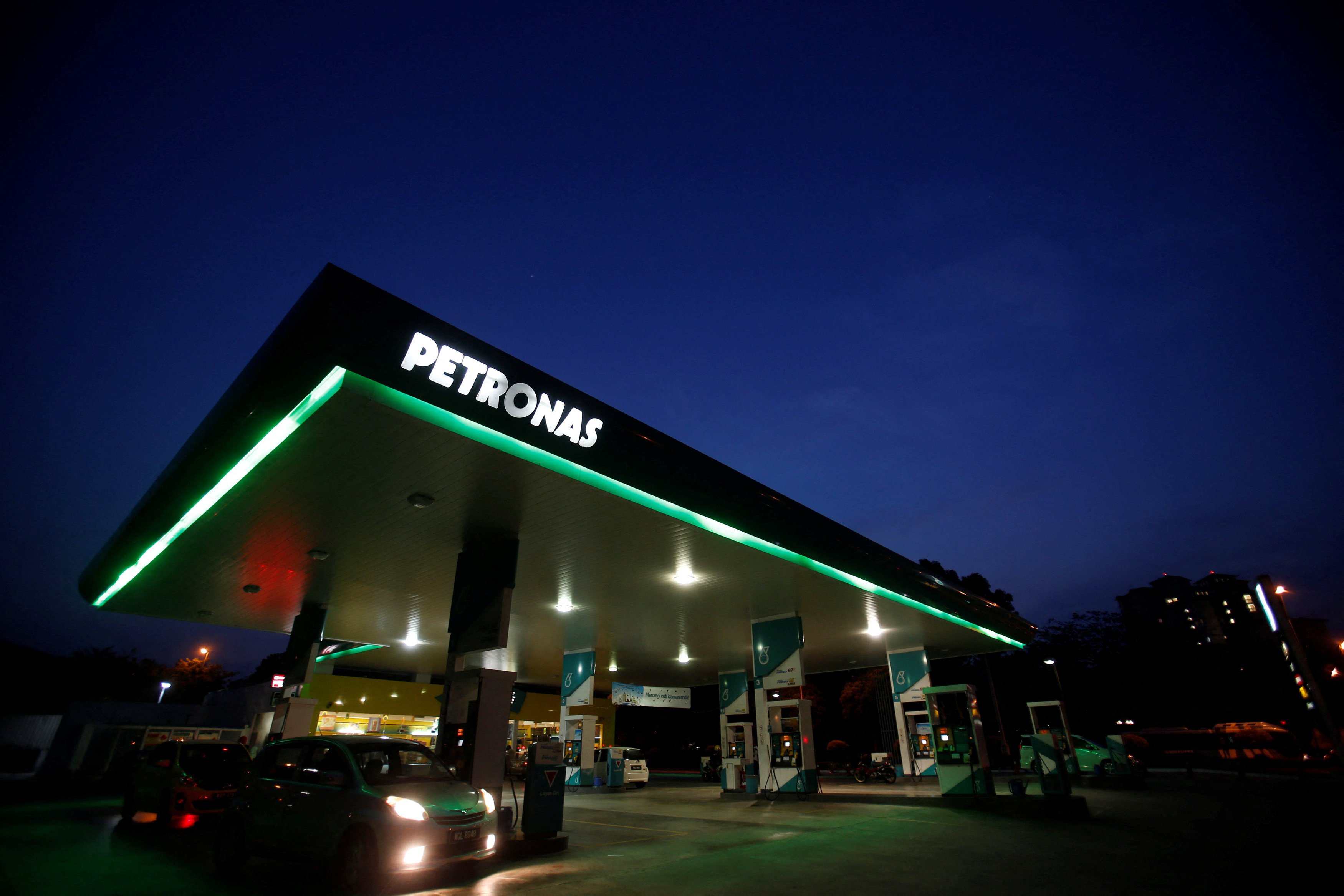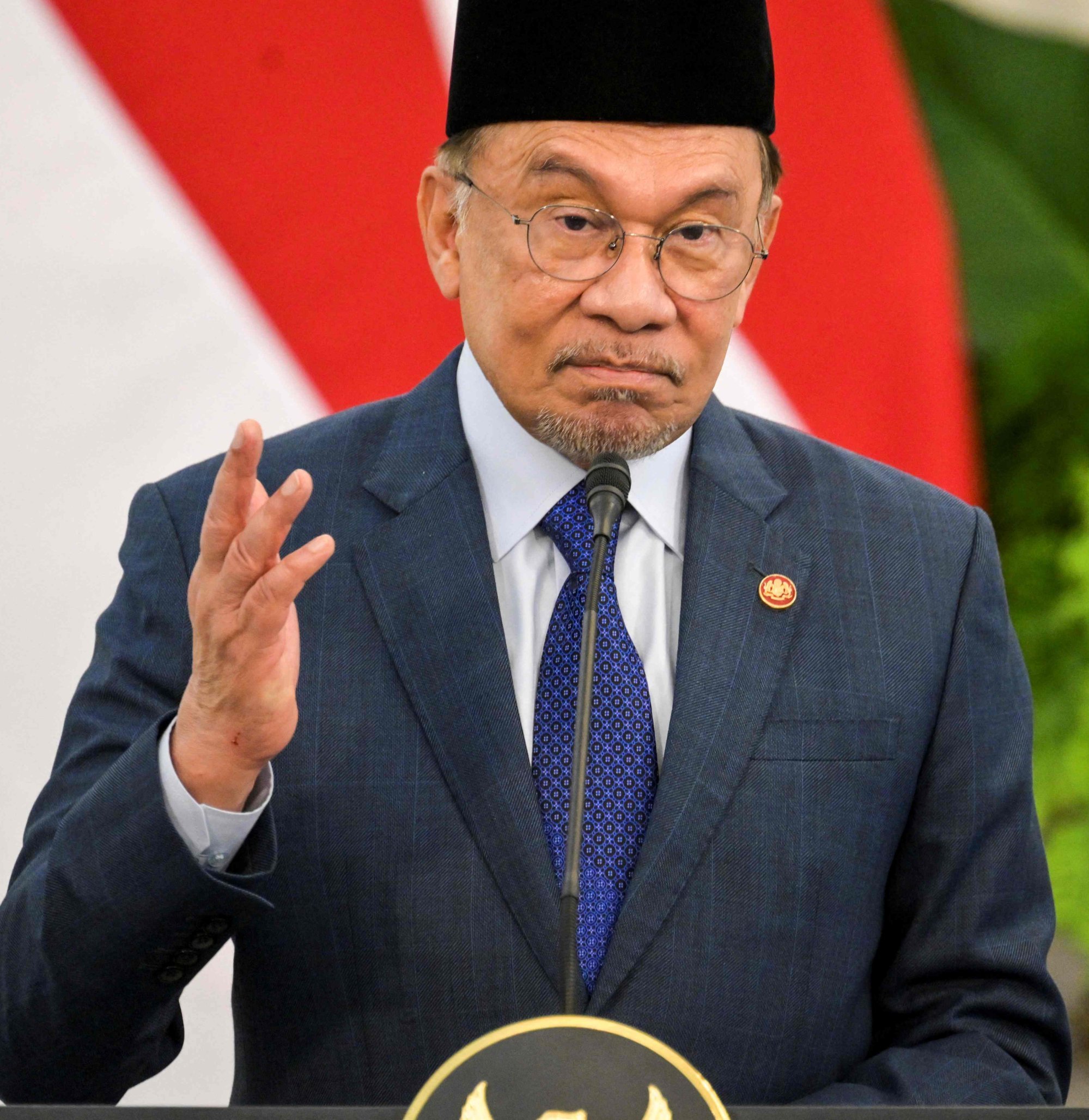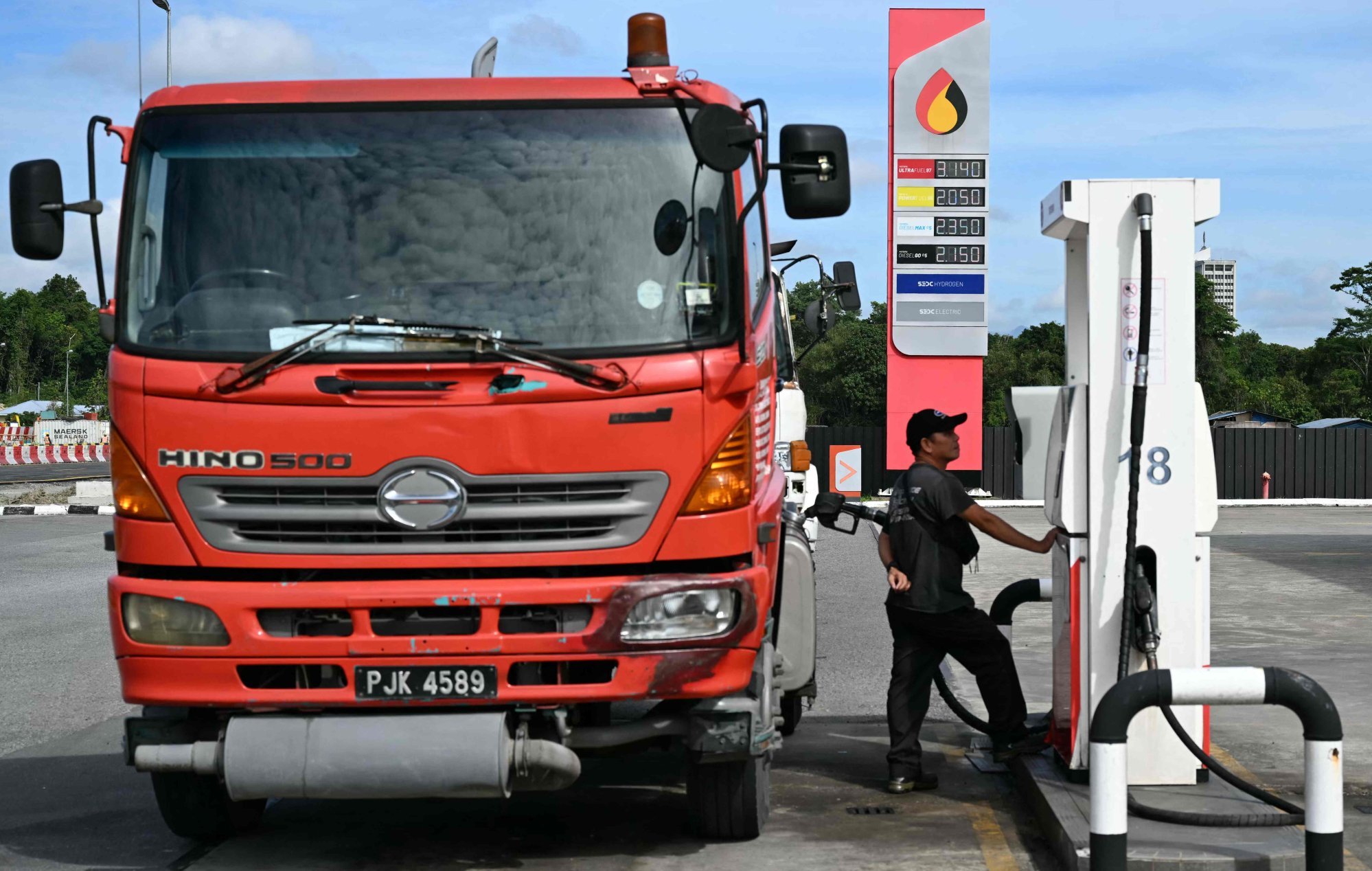‘Risk is very real’: Malaysia’s Anwar gambles on petrol subsidy cuts
Malaysia’s ruling coalition suffered a by-election loss after its diesel subsidy cuts, demonstrating the risks of the coming RON95 reforms

Expertly switching between woks as he whips up appam, the coconut and rice batter pancakes that draw morning commuters to his roadside stall in a Kuala Lumpur suburb, Raj Kumar harbours anxieties that simmer away beneath the calm: petrol subsidy cuts are looming and prices may soon rise again.
At 44, Raj feels every shift in Malaysia’s rising cost of living – both in the prices he pays for ingredients and the rueful faces of his customers.
“Our suppliers raised prices after diesel subsidies were cut last year,” he told This Week in Asia. “If they cut petrol subsidies, prices are sure to go up again.”
Prime Minister Anwar Ibrahim announced in May that his government would press ahead with its plan to restructure subsidies for RON95 grade petrol in the second half of this year.
The move is part of a bid to slash an unwieldy subsidy bill that soared to an all-time high of nearly 80 billion ringgit (HK$148.6 billion) in 2023, with about half spent on fuel – both petrol and diesel.

The government’s aim is to end blanket subsidies and ensure that only the most needy receive state support – a move that is fiscally prudent but politically dangerous for Anwar with a general election due by 2028 at the latest.
“I voted for Anwar since 2013 because we thought he would help us when he took power. But I don’t feel like there has been much help,” Raj added.
Last June, Malaysia scrapped blanket subsidies for diesel, leaving businesses that did not qualify for targeted aid – such as tour bus operators – facing higher costs even as demand remained weak.
The move, which the government said would shave off up to 7.5 billion ringgit from annual spending, followed an earlier cut to electricity subsidies and was swiftly followed by a by-election defeat for Anwar’s ruling coalition just weeks later.
Sticker shock
But petrol is far more widely used than diesel in Malaysia, a country where economic and social mobility depend on access to vehicles and where there are more registered cars than people.
Today, the government-subsidised price stands at 2.05 ringgit (HK$3.80) per litre – about 90 ringgit for a full sedan tank. An increase will affect the lives of millions, not just the wealthy or foreign motorists whom Anwar claims account for 40 per cent of the subsidy burden.
“I need to drive around to find customers, but there is no guarantee. Some days I get a lot, some days just one client,” said e-hailing driver Aziz Ghani, 52. “If petrol prices go up, I may have to give up lunch.”
According to government estimates, the planned cuts might save up to 8 billion ringgit annually, funds Anwar argues could be redirected to education, healthcare and public transport.
But the timing could hardly be worse. Public discontent is already bubbling over, fuelled by accusations of nepotism linked to the political rise of Anwar’s daughter, Nurul Izzah, with the prime minister being hit by a blizzard of criticism.
“It is a very unpopular decision to make, regardless of who is in charge. Malaysians are addicted to cheap petrol,” said Adib Zalkapli, managing director of geopolitical and public policy advisory firm Viewfinder Global Affairs.

The political risk appears to have rattled Anwar. After initially claiming last October that 85 per cent of drivers would be unaffected by subsidy cuts, he has since widened that estimate. “I would like to reiterate that there is no issue of the RON95 increase affecting 85 to 90 per cent of our people,” he said on June 16.
Earlier in May, Anwar even promised to gradually reduce fuel prices, while insisting that subsidy cuts were necessary due to “the 4 million foreigners in this country”. Authorities have floated a plan to require Malaysians to show their identity cards at petrol stations to receive subsidised rates.
The origins of Anwar’s “4 million” figure are unclear. Malaysia issued more than 150,000 expatriate passes last year and granted work permits to about 2.5 million foreign labourers.
Malaysians regularly gripe, however, about Singaporean drivers filling up their cars with subsidised petrol on the weekends before heading home over the causeway.
Despite the jitters, analysts say there may be no better time for reform, even after Brent crude prices jumped 15 per cent to US$75 a barrel on June 13 in the wake of the Israel-Iran conflict.
With Iran holding off on a threatened blockade of the Strait of Hormuz – through which one-fifth of the world’s oil supply passes – global prices should settle at around US$70 a barrel for the remainder of the year, according to Mohd Afzanizam Abdul Rashid, chief economist at Bank Muamalat in Malaysia.
That would be higher than the US$65 average earlier in the year, but still less than last year’s US$80 mean, which would have pushed prices at the pump in Malaysia to 3.18 ringgit per litre without government support, Afzanizam said.
The end of blanket diesel subsidies has already helped reduce government spending in the first quarter of 2025, with savings estimated at 12.9 billion ringgit, aided by softer global crude prices, finance ministry data shows. Inflation also eased to 1.5 per cent over the same period, down from an average of 1.8 per cent last year.
That suggested Anwar’s economic reforms had, thus far, “not resulted in negative shocks”, Afzanizam said.
But for many, these headline economic figures mask the daily strain.
“We are just not getting much business now. Look around you, it is quiet here,” said Noorul Manan Mohamad Ibrahim, 42, a third-generation spice trader at a wet market in the city.
Businesses have had to absorb the extra costs and pass some of them on to their clientele, he said.
‘Risk is very real’
Anwar faces a slew of state elections over the next two years, starting with a poll in Sabah later this year. Though these contests will not alter the make-up of parliament, they are seen as a bellwether for the prime minister’s popularity ahead of the next general election.
“Anwar is walking on a tightrope,” said Kamles Kumar, Malaysia head of strategic advisory firm Asia Group Advisors. “The political risk is very real. The messaging from the government needs to be airtight; otherwise, they risk playing into the hands of the opposition.”
For now, Anwar’s supermajority in parliament, and an opposition weakened by a string of corruption scandals, offer a rare window for bold action.
“The best time to make an unpopular decision is during the first year after winning the elections,” said Adib of Viewfinder Global Affairs. “The second-best time is when you have a dysfunctional opposition, which is the case now.”